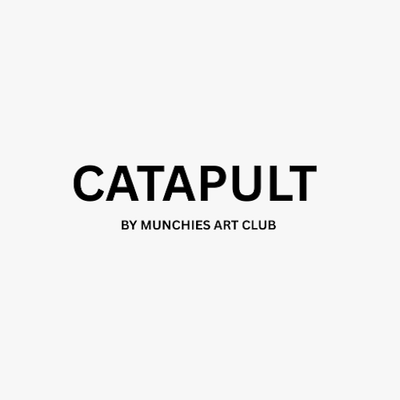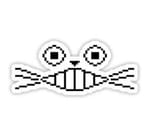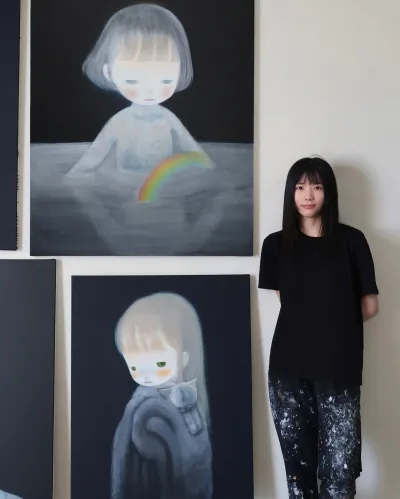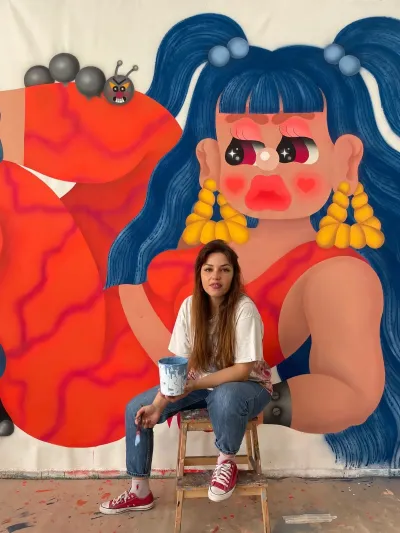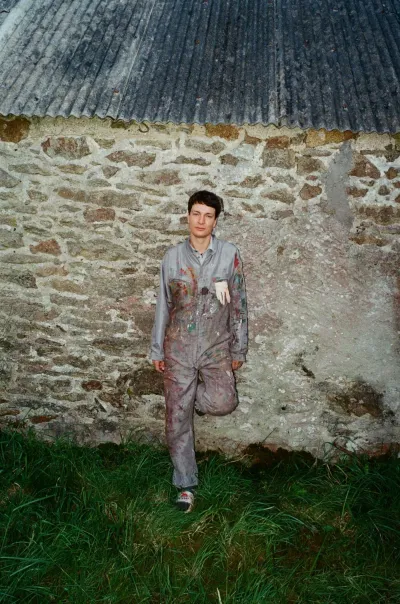Gabriela Genčúrová in Conversation: On Instinct, Symbolism, and the Quiet Power of the Surreal
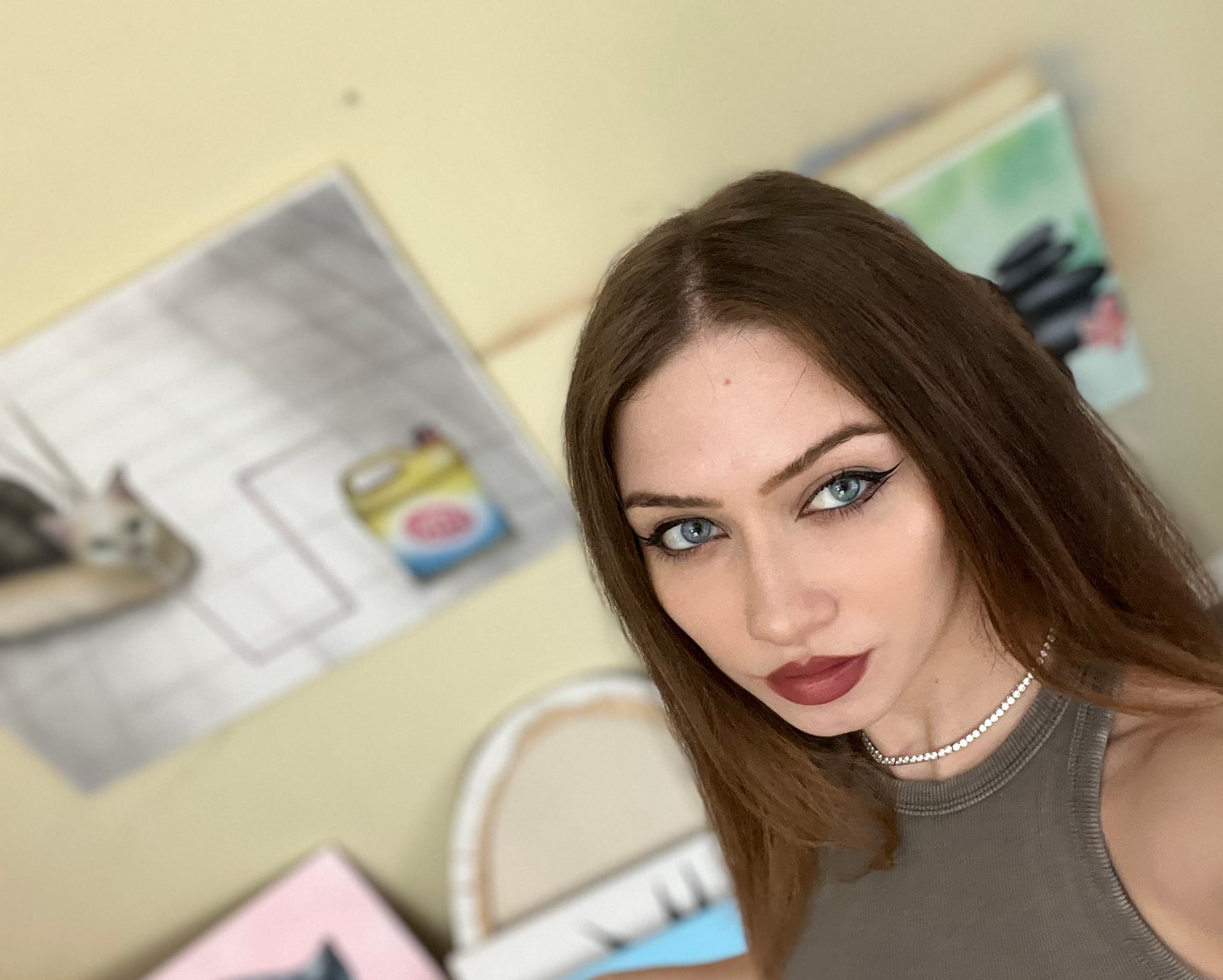
An intimate talk with DiFranco on turning fleeting feelings into timeless forms
Driven by instinct and spontaneity, Gabriela Genčúrová acts on ideas the moment they arrive — before they vanish.
Her visual language is visceral, symbolic, and always open to interpretation, making her art a quiet mirror for the emotions many carry but few can name.
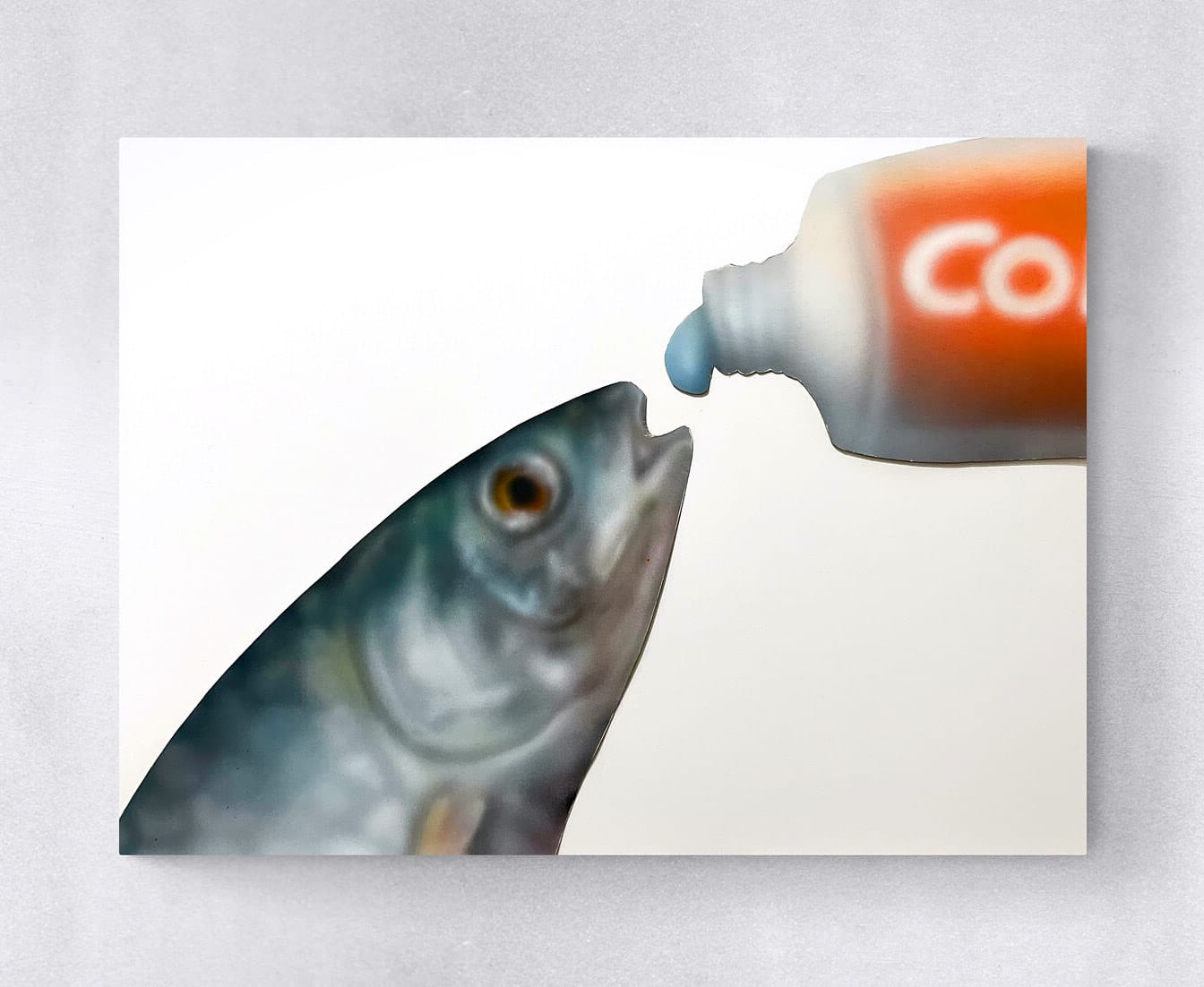
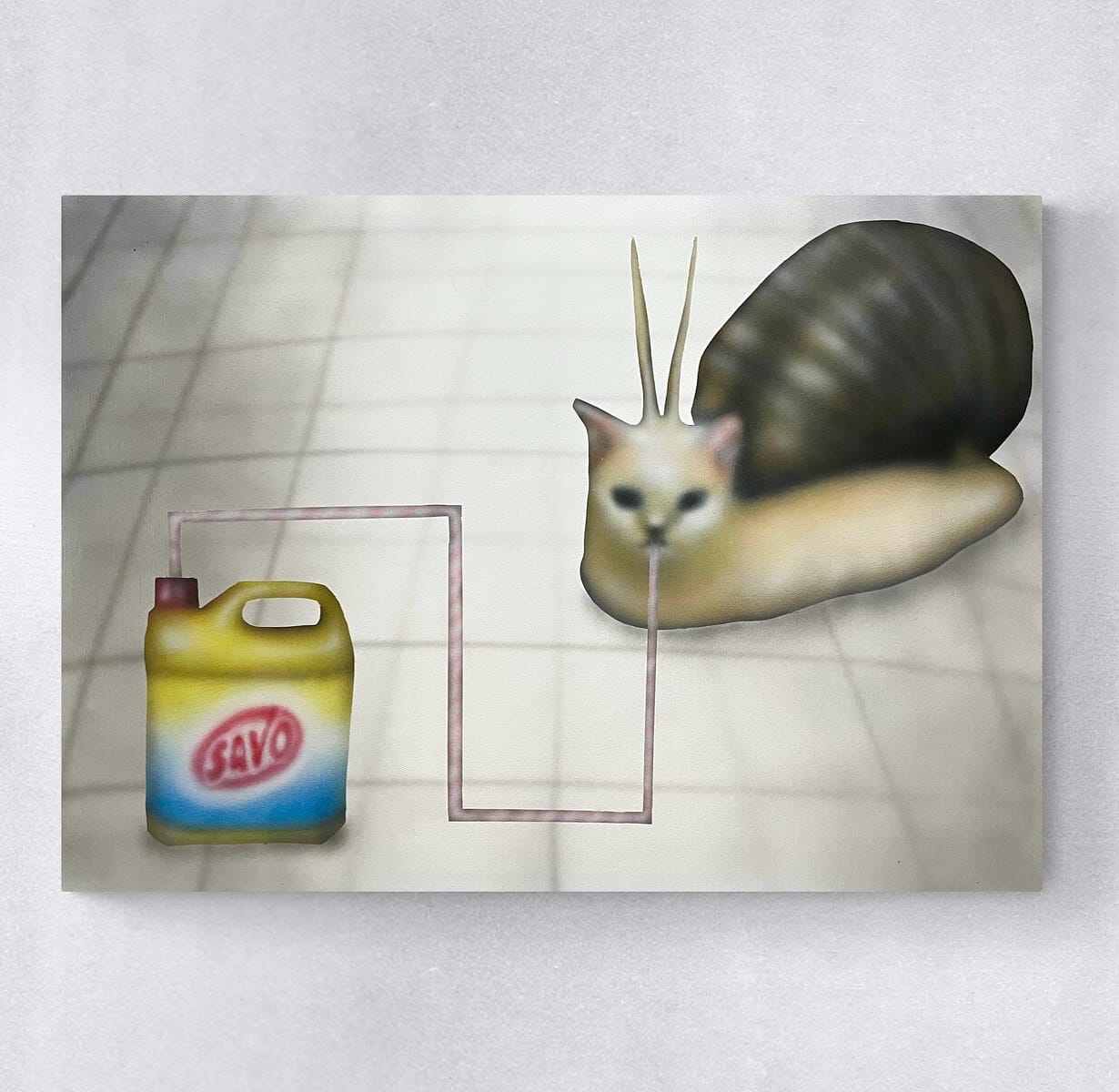
Her work delves into themes such as the inner child, transformation, nostalgia, identity, unfulfillment, self-sabotage, and quiet spirituality.
Strange animal figures and distorted characters become vessels of raw emotion — unreal beings that seem to speak uncomfortable truths with just a gaze.
Throughout her practice, Gabriela has explored various media — from drawing and sculpture to animation — but currently focuses on airbrush painting, a technique that allows for an almost ethereal softness.
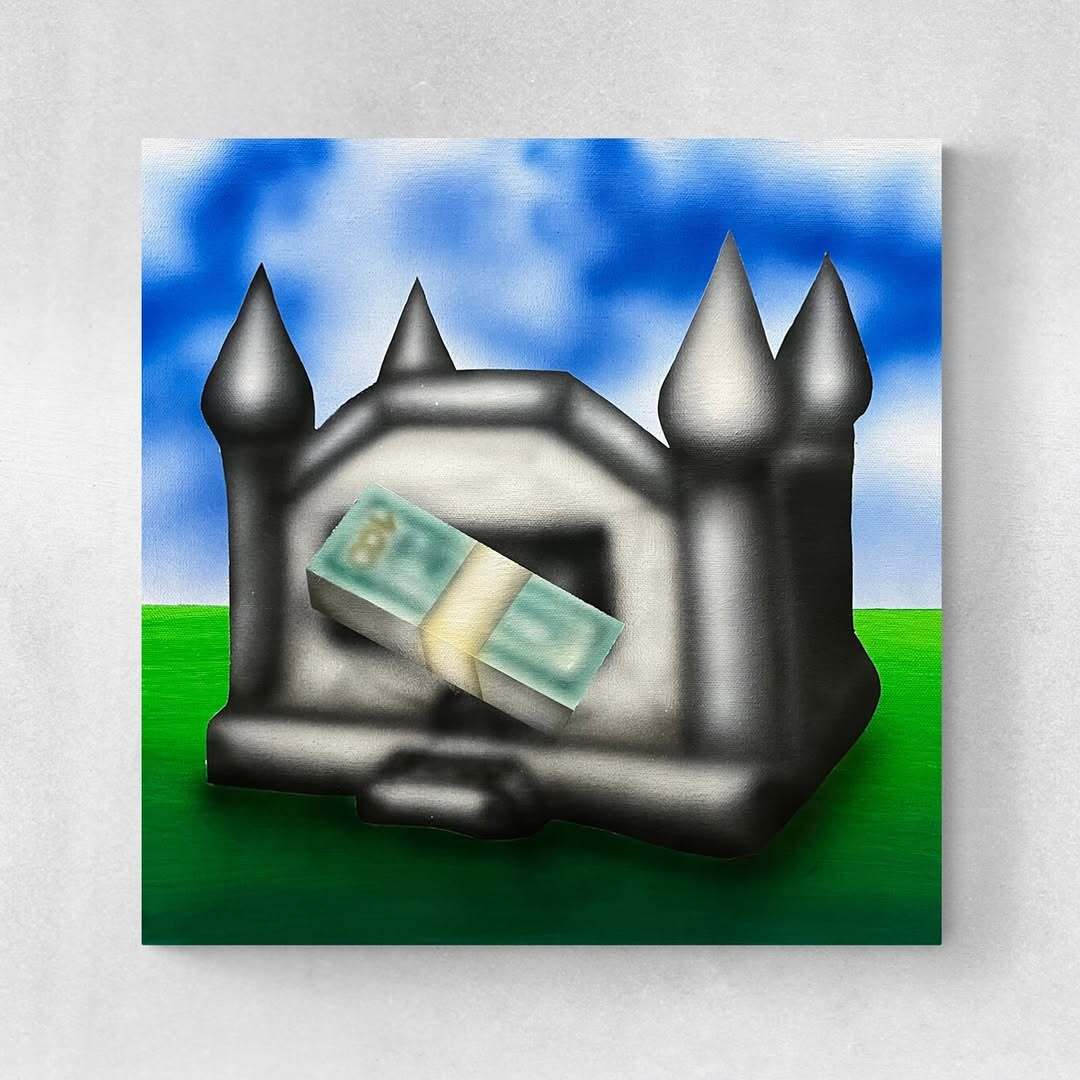
Rather than offering answers or linear narratives, her pieces invite introspection: portals into personal stories and shared generational experiences, suspended in time and open to those willing to truly look.
Gabriela Genčúrová in conversation with DiFranco:
1. Can you describe your artistic journey and how you discovered your unique visual style?
My artistic journey started before I can even remember. As a child, I was always drawing, sewing, embroidering, crocheting, sculpting—constantly exploring different techniques through books and tutorials.
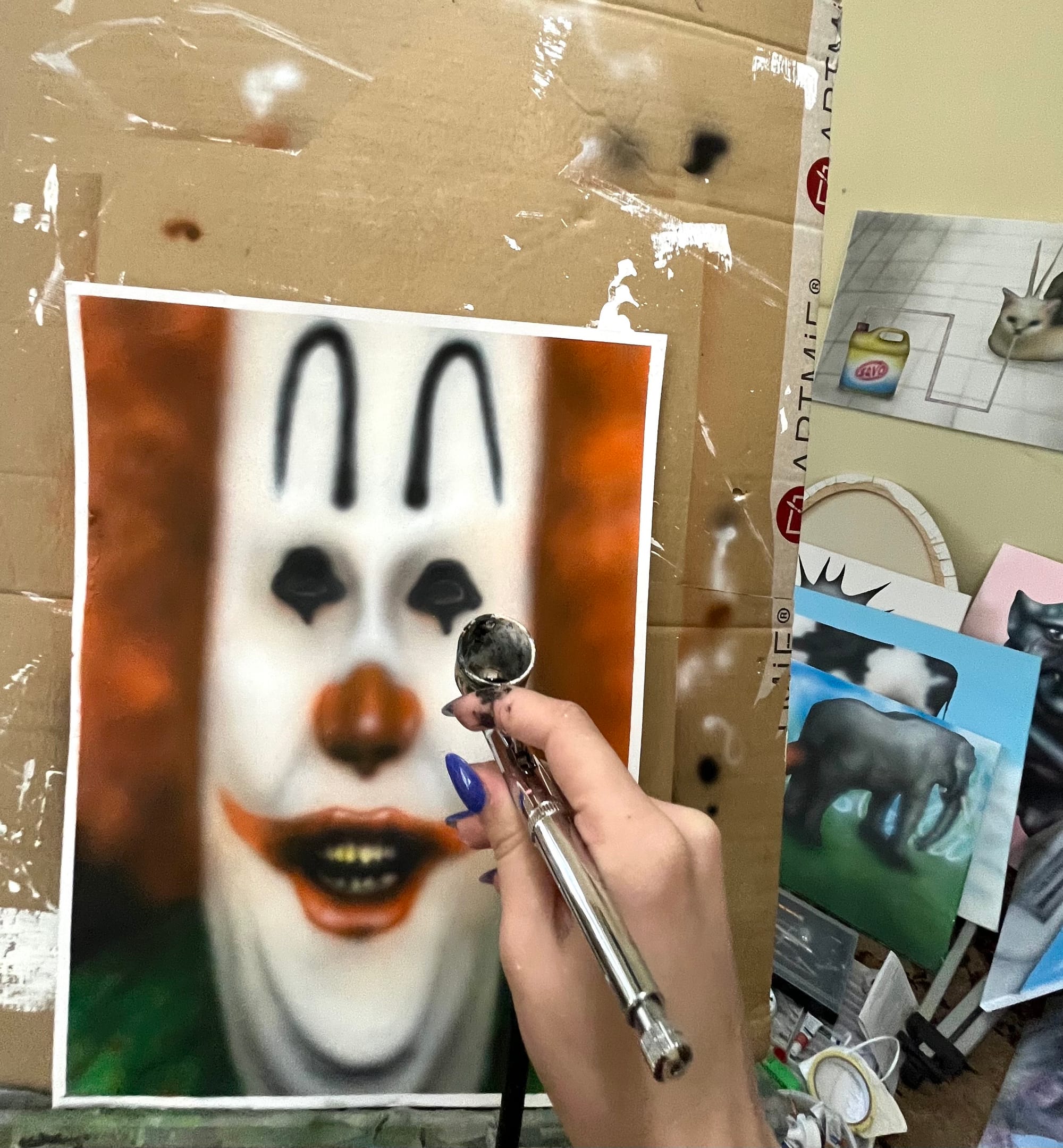
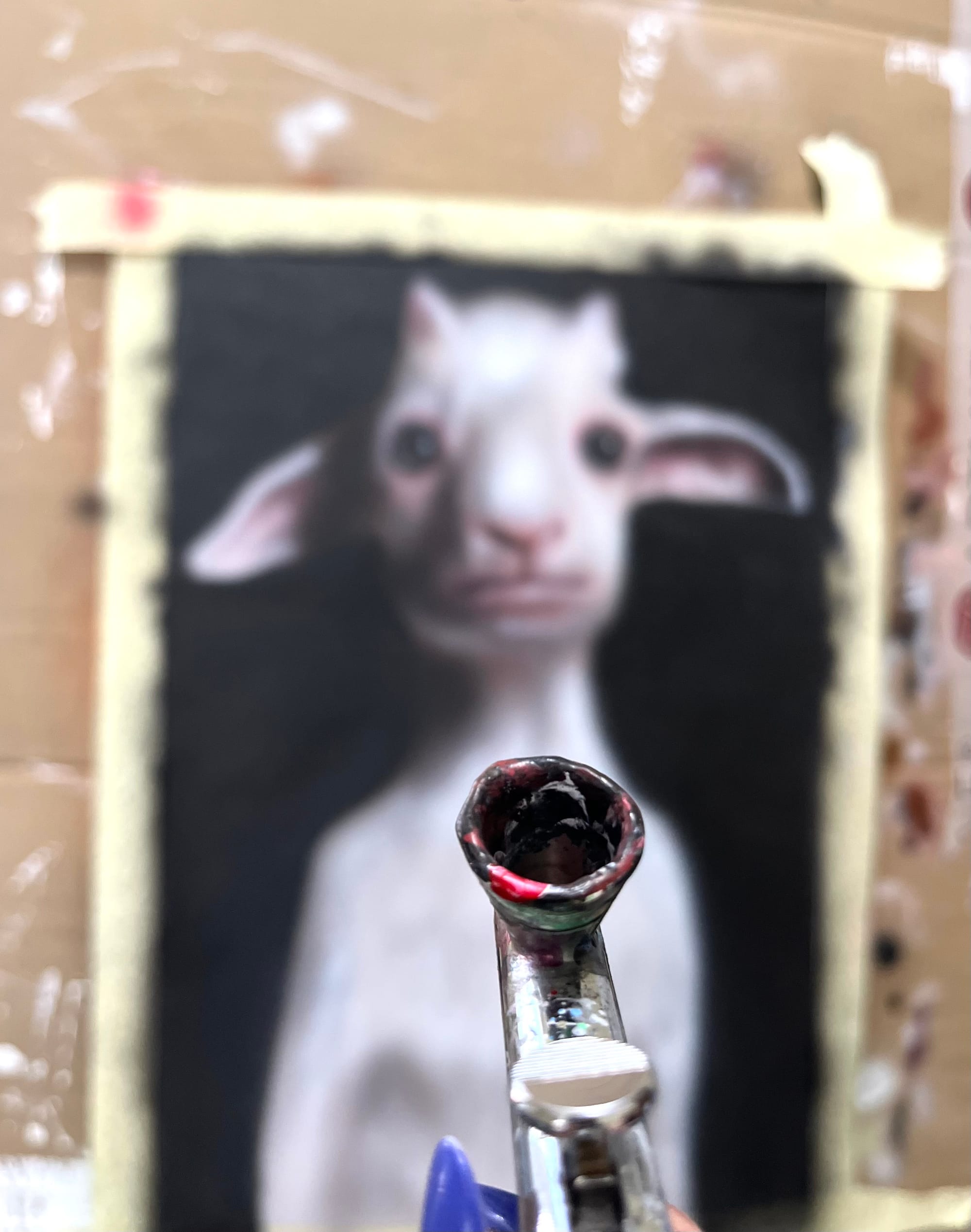
In the studio with Gabriela Genčúrová Permission and courtesy of the artist.
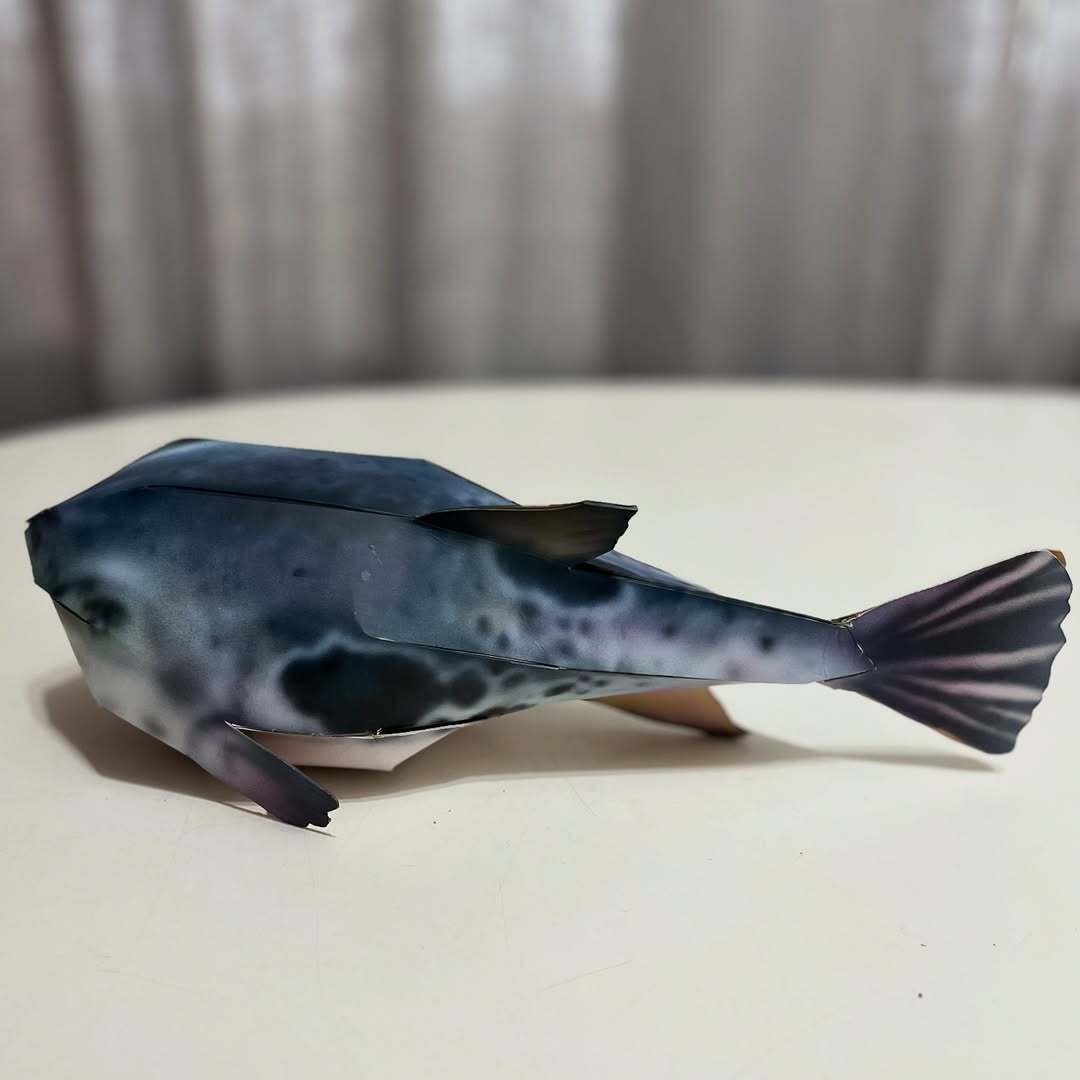
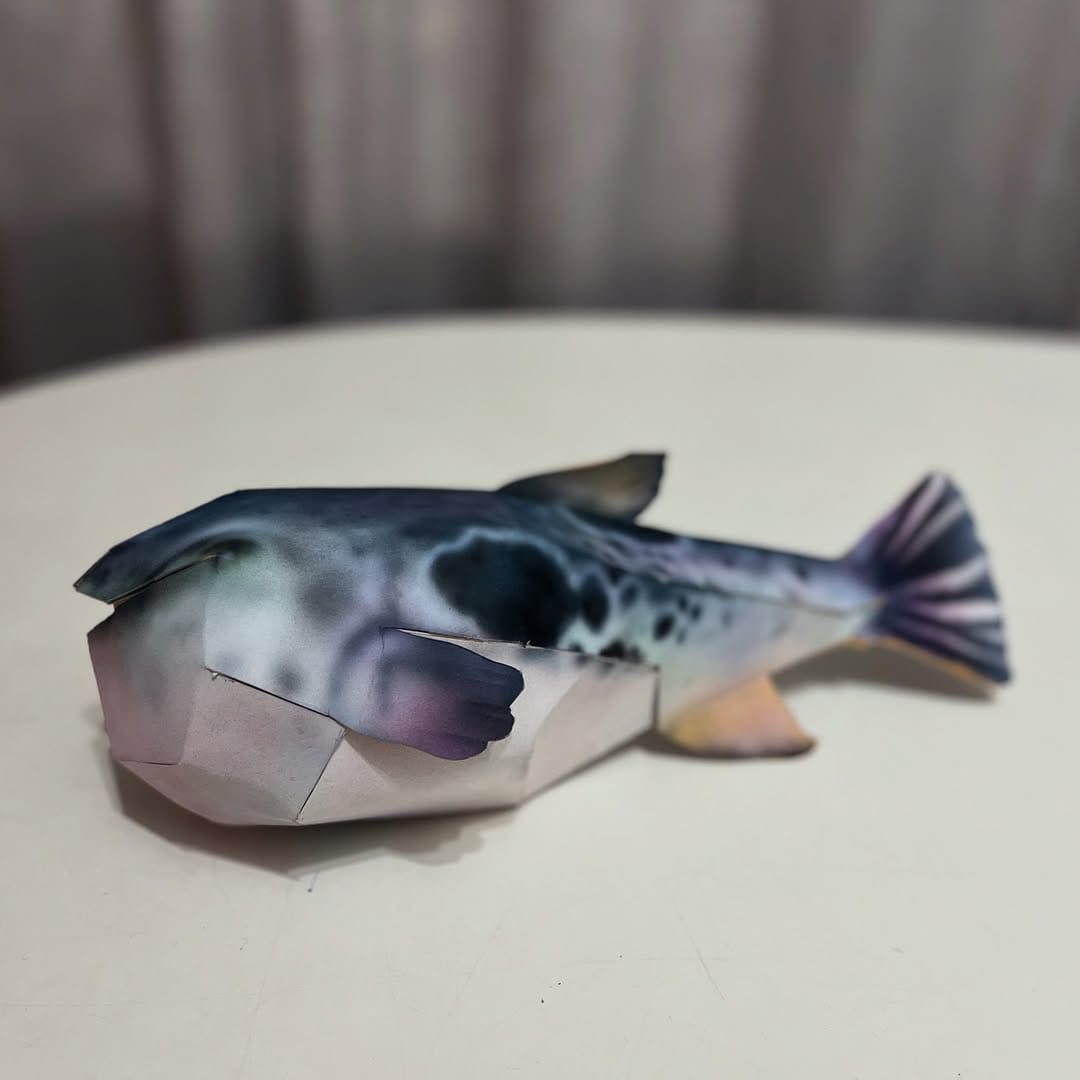
Gabriela Genčúrová: Paper Puffer Fish Permission and courtesy of the artist
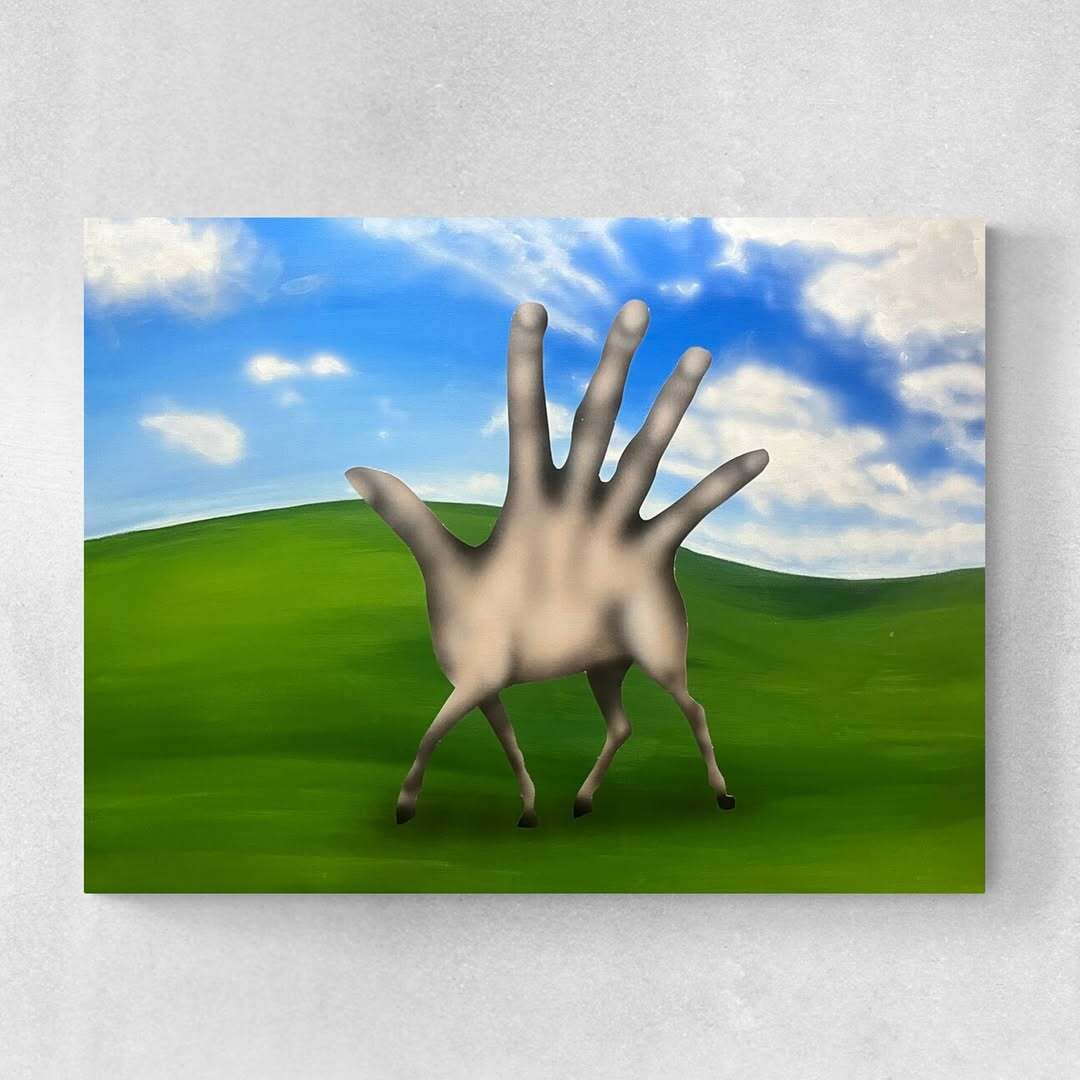
Around the age of 13, I began painting with acrylics, and later transitioned into using airbrush. I’ve always gravitated toward surrealism, as dreamlike worlds feel very close to me emotionally.
With the change in medium came a shift in how I thought about my work, and over time, through constant creating,
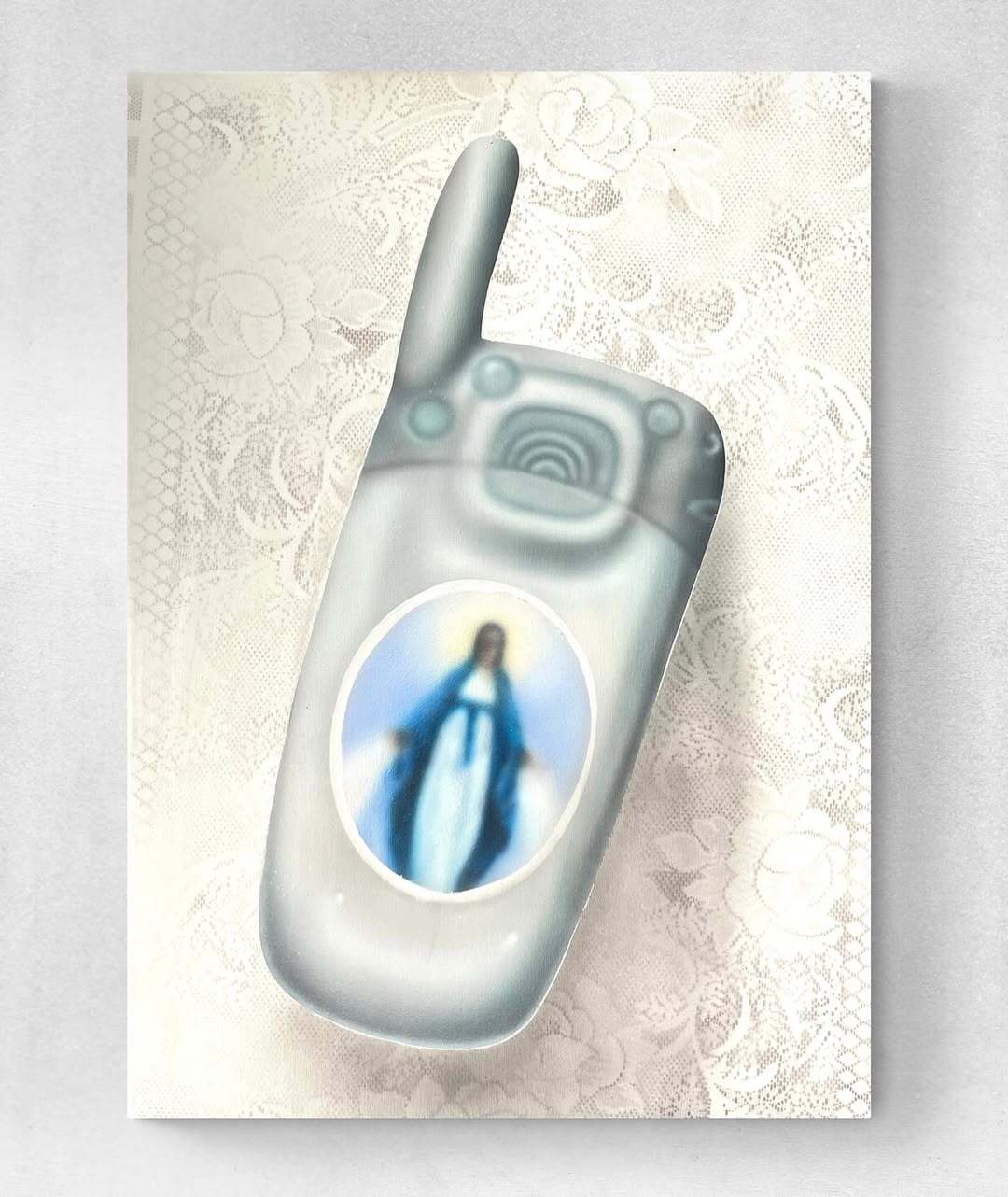
I naturally arrived at my current visual language. I value freedom—both in life and in my art—and I try to keep that sense of openness present in everything I create.
2. What role does the airbrush play in your creative process, and how did you begin working with it?
I first encountered airbrush painting at a friend’s exhibition a 3 years ago. The paintings looked so smooth and visually delicious—I almost wanted to eat them.
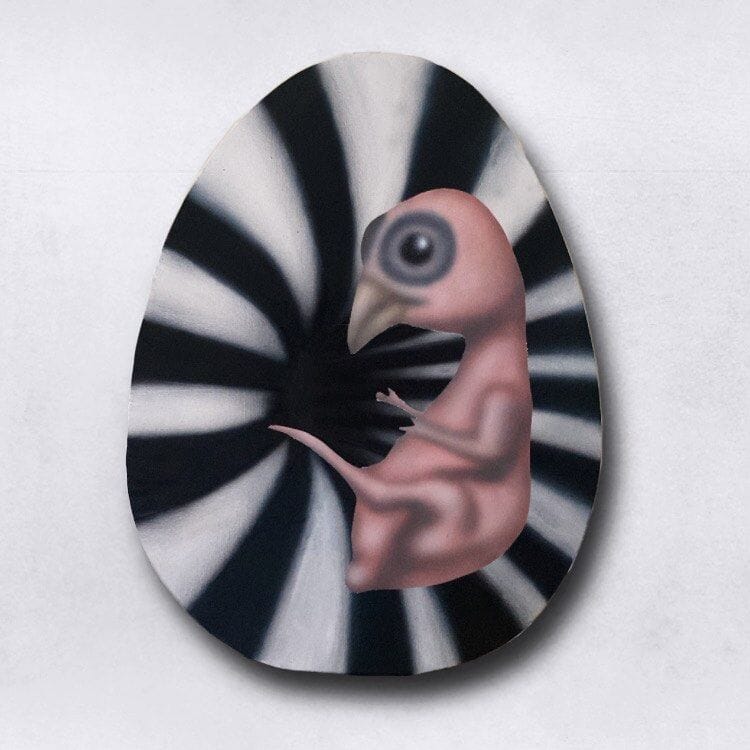
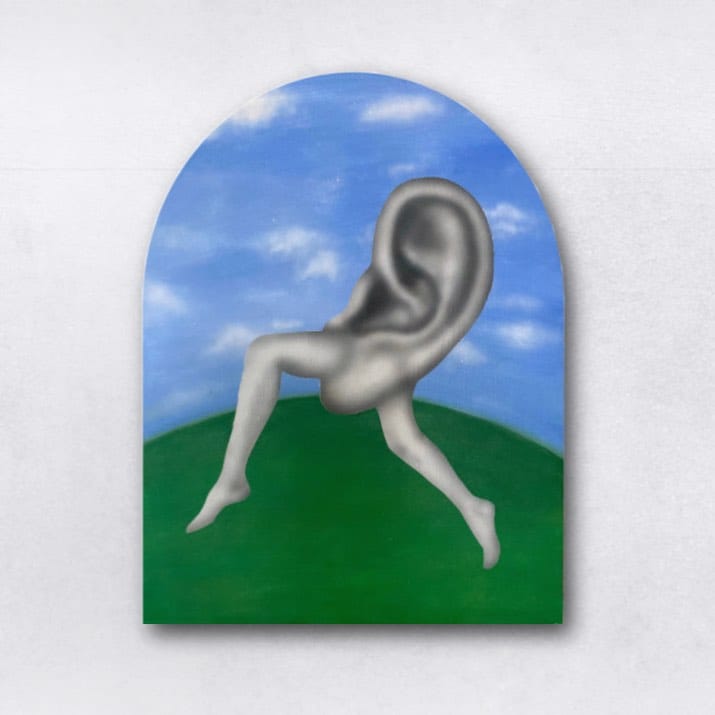
Gabriela Genčúrová: (left) Embryo Portal | (right) Freedom Permission and courtesy of the artist.
At that time, I believed airbrushing was too complex, and it felt scary to leave the comfort zone of traditional painting.
But about a year later, I bought the full setup. I cried over broken airbrushes and many failed attempts, but looking back, I’m glad I didn’t give up.
Now, airbrushing feels much more intuitive and natural to me, and I love working with it.
What I love about airbrush is the range of approaches—you can go freehand, mask off areas, or build up soft transitions.
3. How do you choose the color palettes for your paintings? Do they reflect emotions, themes, or intuition?
It’s a mix of all of those things. I usually have a plan based on the mood or atmosphere I want to achieve.
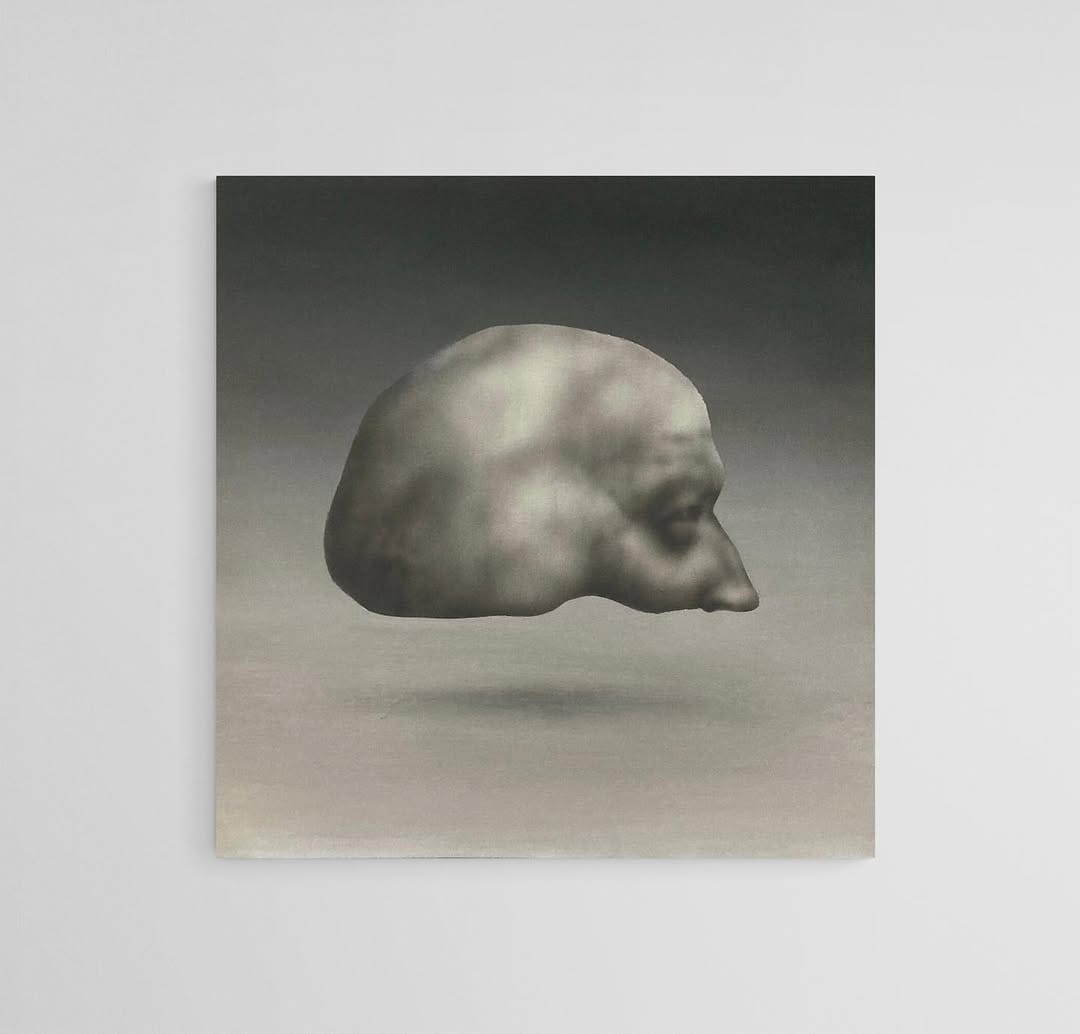
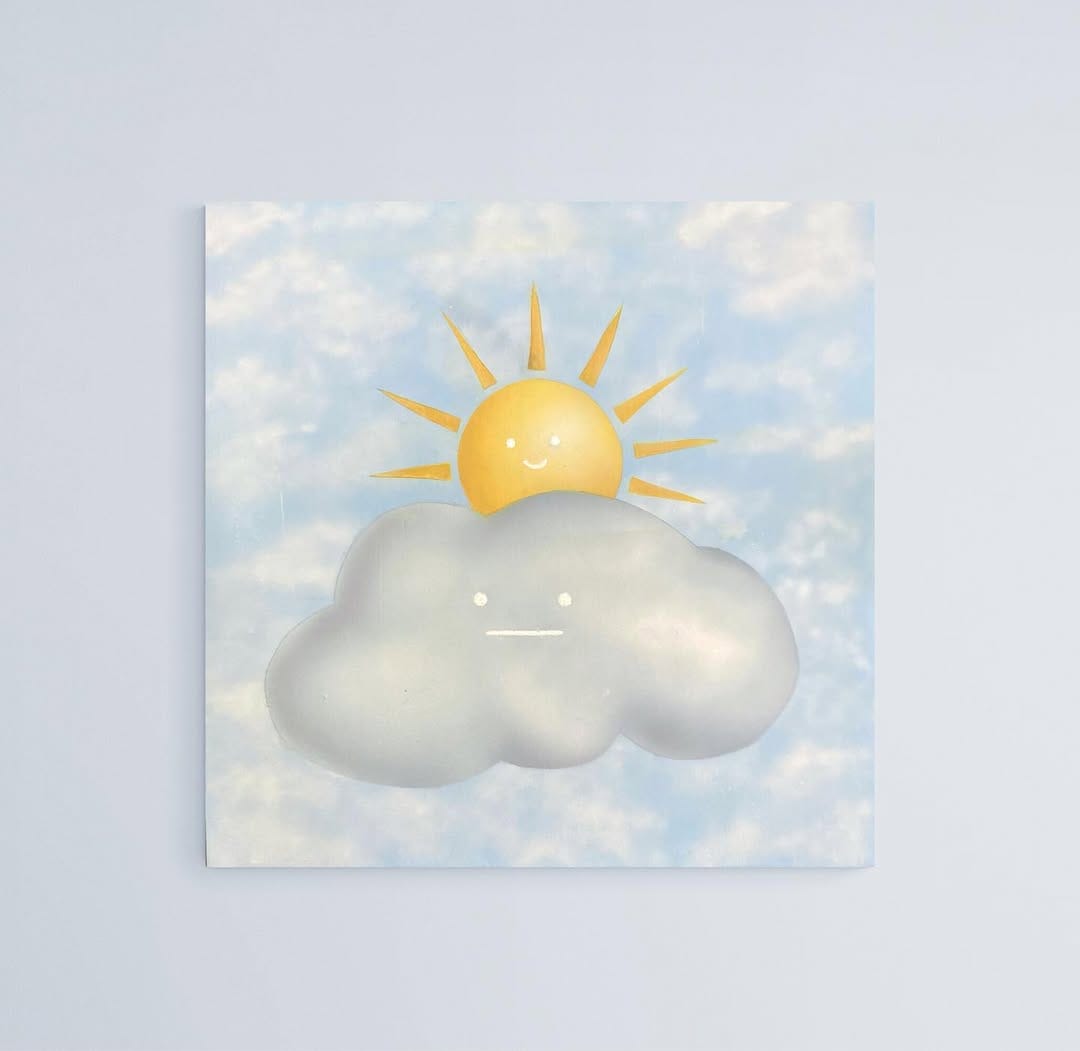
Gabriela Genčúrová: (left) človek si a na kameň sa obrátiš 🗿 | (right) let me be your little sun Permission and courtesy of the artist.
But the process of mixing colors for an airbrush is a bit different than working with a traditional palette—it’s liquid, so when it dries, it can shift in tone.
I also try not to waste paint, so if I mix too much of one color, I’ll adapt during the process. So even if it starts off planned, there’s always an element of improvisation.
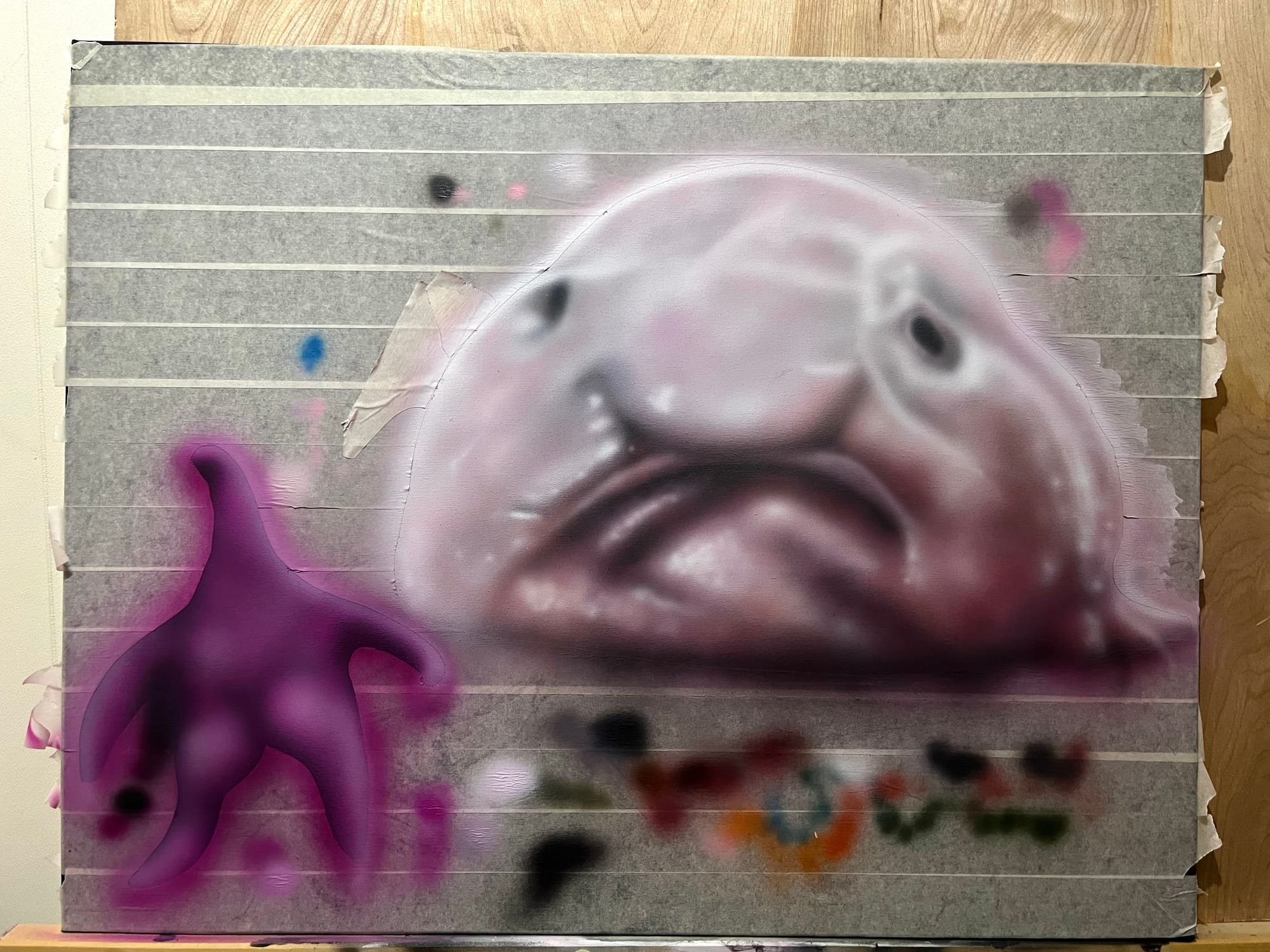
4. What does the fusion of traditional painting with digital tools mean to you as an artist?
For me, combining traditional painting with digital tools is a way to experiment and quickly visualize ideas.
I like to create digital sketches or collages using references, which allows me to play with composition and details without being limited by materials.
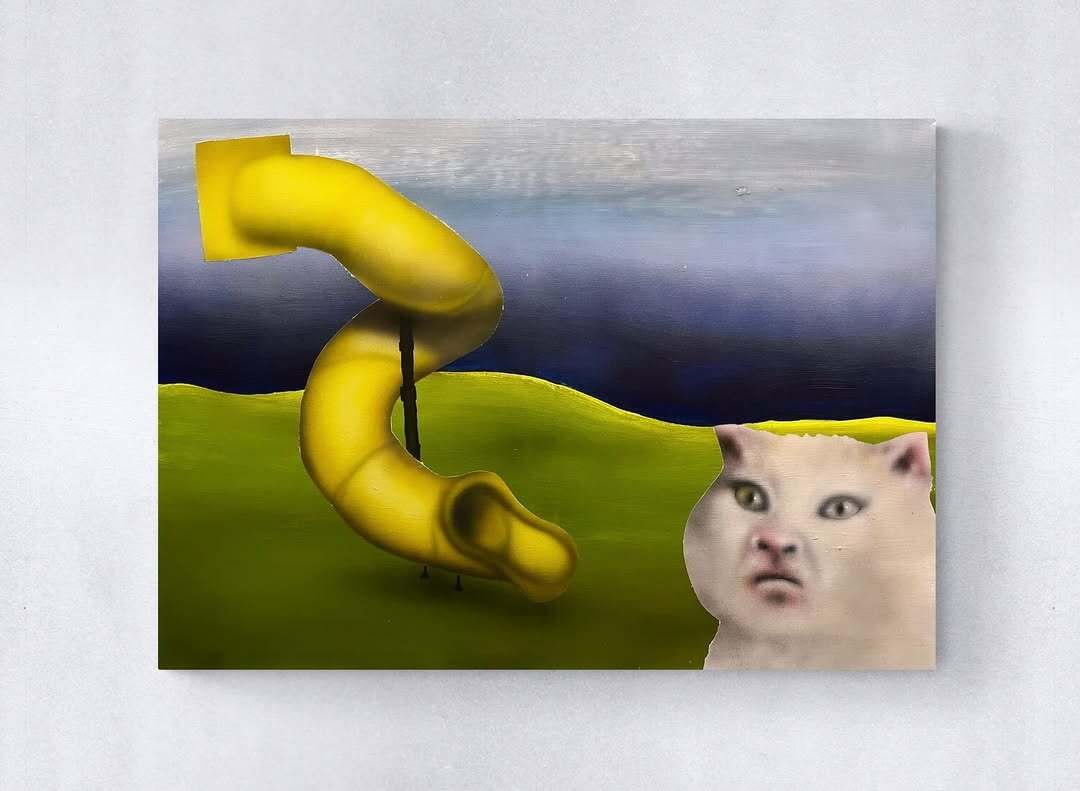
Once I’m happy with the idea, I translate it into traditional painting, where I can work in a way that feels natural and intuitive to me.
5. Can you tell us about your collaboration with the “Summer Artist Series: Bika Collection” and how it felt to see your art on clothing?
This collaboration was really important to me at that time — it felt like a big moment, especially as a young artist.
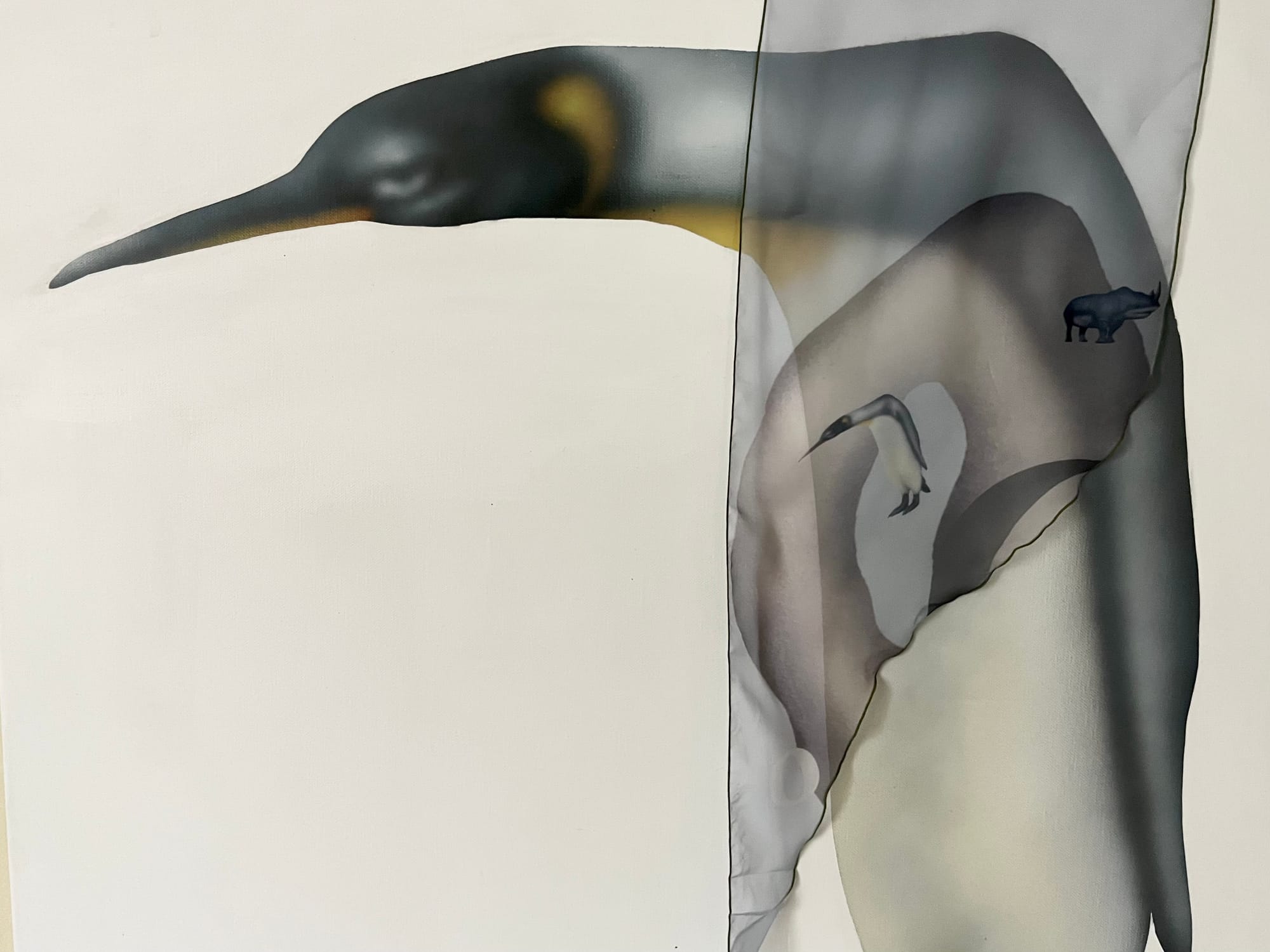
I didn’t know how my art would translate onto clothing, but I trusted the brand’s creative vision. In the end, it honestly exceeded my expectations. Seeing my work on such stylish pieces — and on people — was a surreal, exciting experience and kind of a dream come true.
6. How do fashion and visual art intersect in your work? Do you see yourself moving more into wearable art?
I’ve always felt a connection to fashion. From the moment I started painting, I also began painting on clothing — mostly for myself or friends.
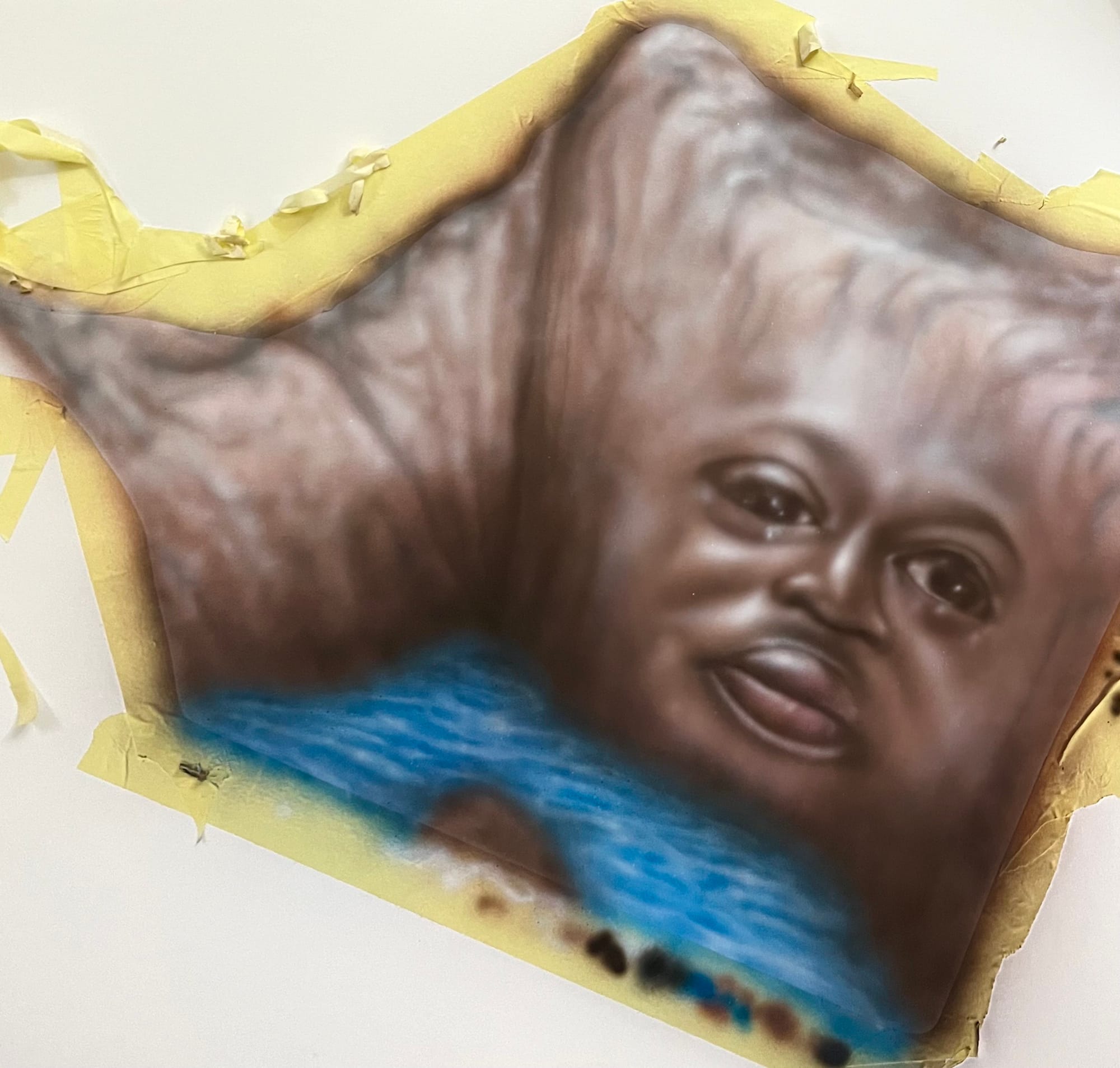
Even now, I sometimes spray designs on pieces, but I don’t often share that side publicly. I wouldn’t say wearable art is my main direction, but I’m open to collaborations if someone has a strong vision that could work with my visual language.
7. What challenges or freedoms does working with mixed media (acrylic, airbrush, digital) bring to your practice?
I try to build my process in a way that gives me more freedom than restriction. Of course, mixing different media can be technically tricky — like how airbrush and acrylic behave differently on canvas, or how a digital sketch might not fully match the feeling once it’s transferred into paint.
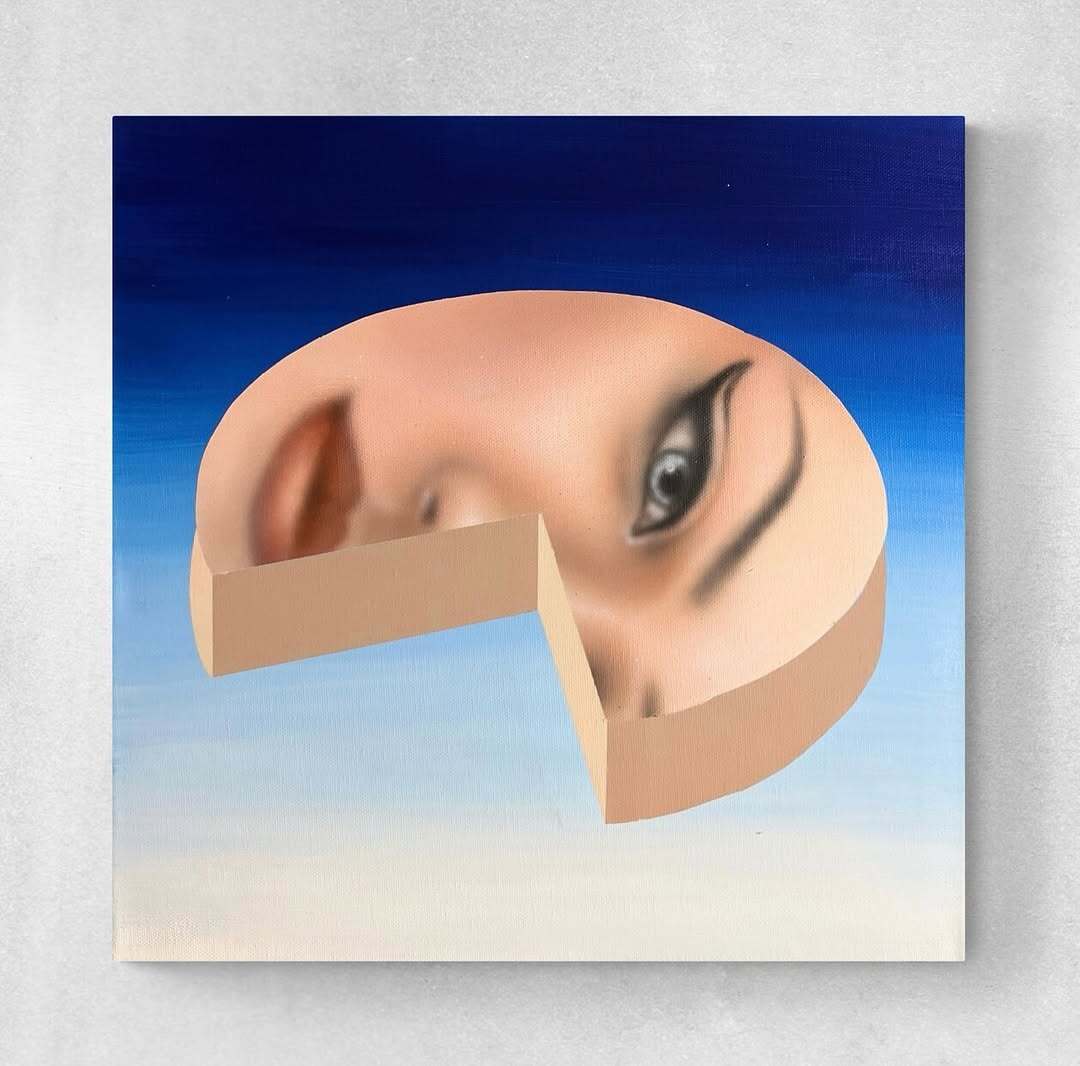
But I like that. That tension creates room for creativity. It keeps the process unpredictable, which I find exciting and full of potential.
8. Do you follow a specific process when starting a new piece, or is it more spontaneous?
I’d say my process is structured in the beginning and spontaneous in the execution. It usually starts with a feeling, a theme, or just a visual idea.
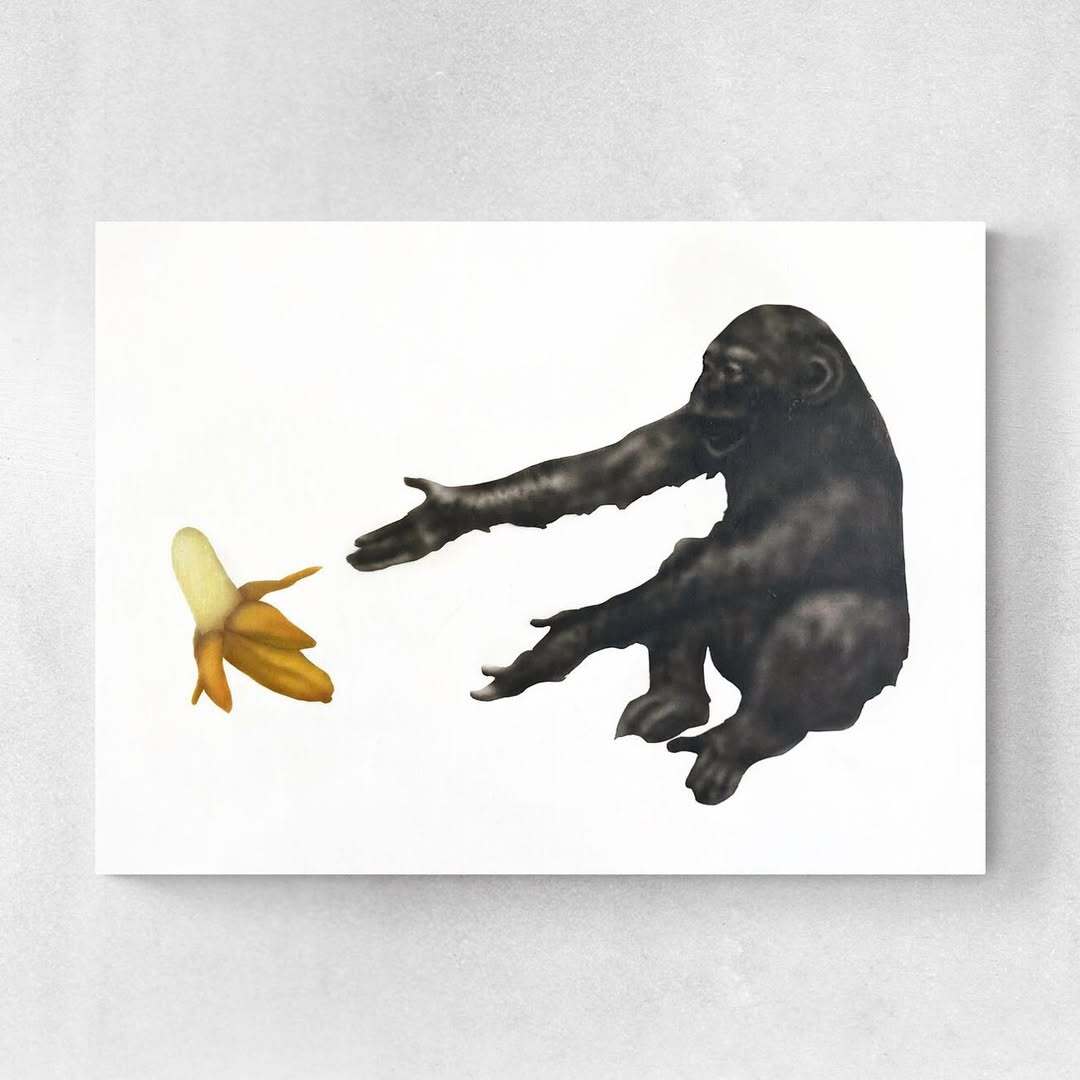
I gather references, make digital sketches — and then once I start painting, I let go of control. I paint intuitively, without a fixed order.
Sometimes I begin with the background, sometimes with the subject, sometimes with tones or colors. And sometimes the “ugly phase” of the painting is really ugly — other times it clicks from the start. It’s always different.
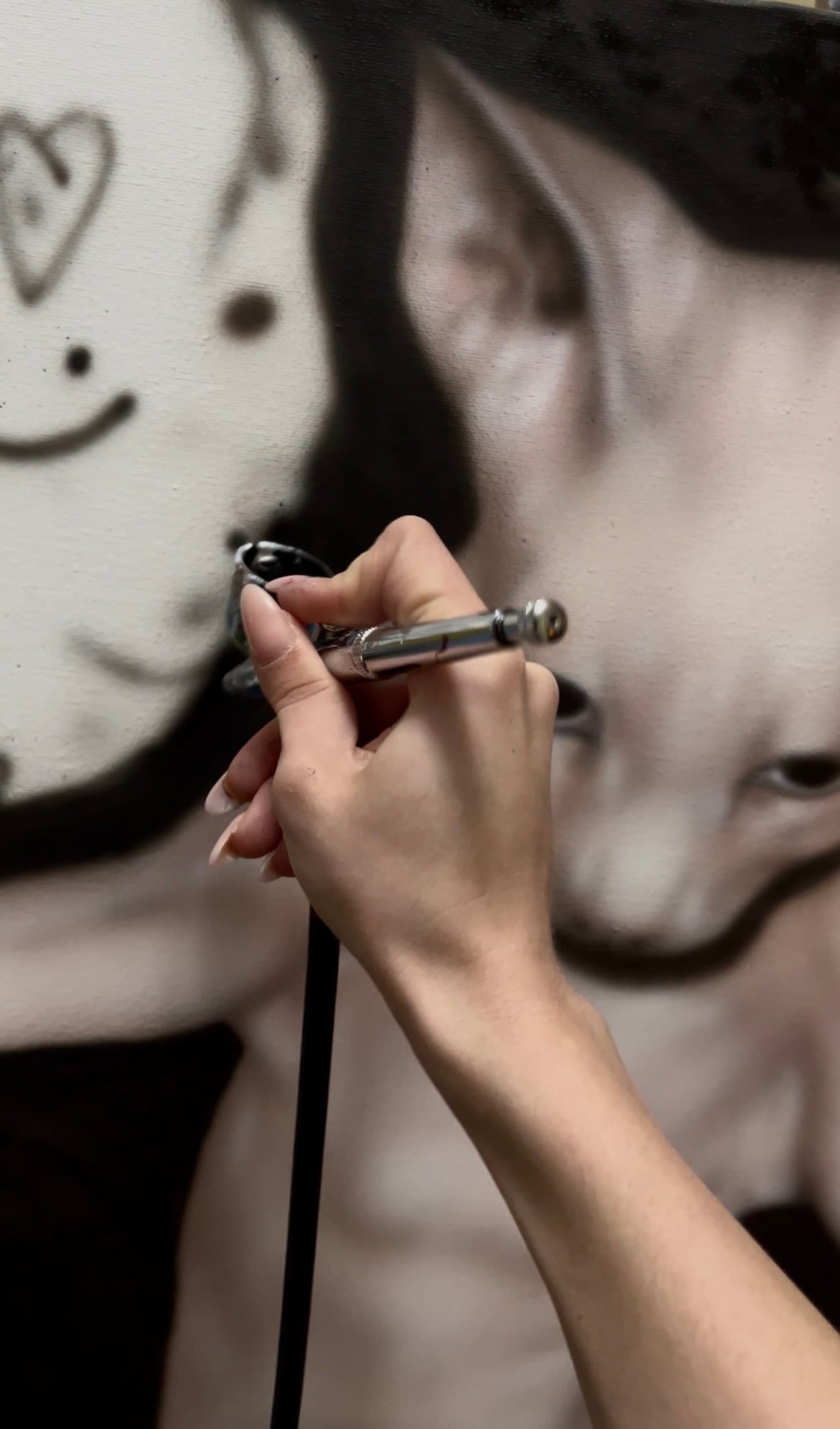
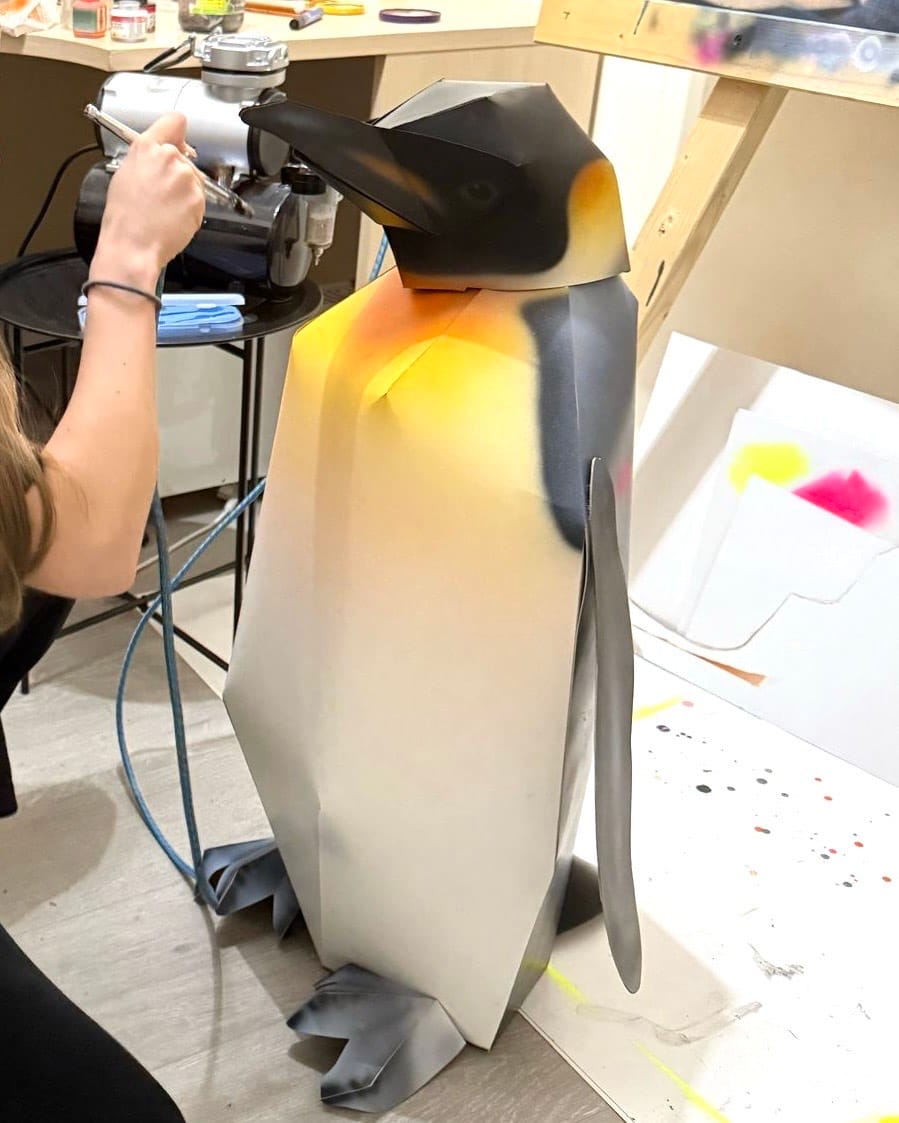
In the studio with Gabriela Genčúrová Permission and courtesy of the artist.
9. How do you view your work in the larger context of the art world? Do you feel your style resonates with contemporary trends or sets you apart?
I think airbrush has definitely become more popular in recent years, even though it’s been around for a while.
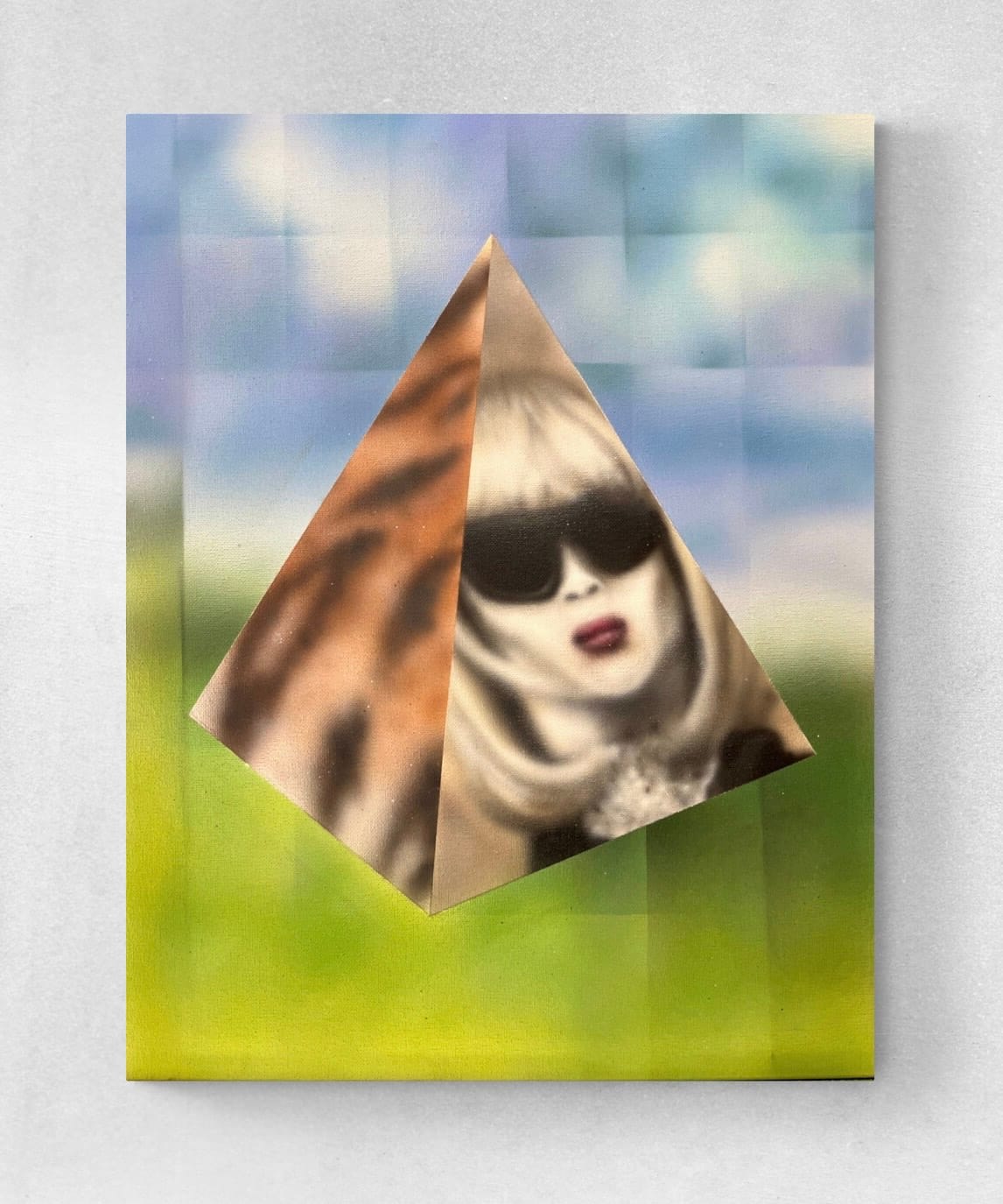
So maybe that helps my work resonate with current trends — but I still try to keep my own voice and direction. It’s hard to say objectively whether my work fits in or stands out. I just focus on making things that feel honest and true to where I’m at.
10. In what ways do you think your environment in Slovakia influences your art, both creatively and conceptually?
Whether we realize it or not, the environment we grow up in shapes us — both consciously and unconsciously.
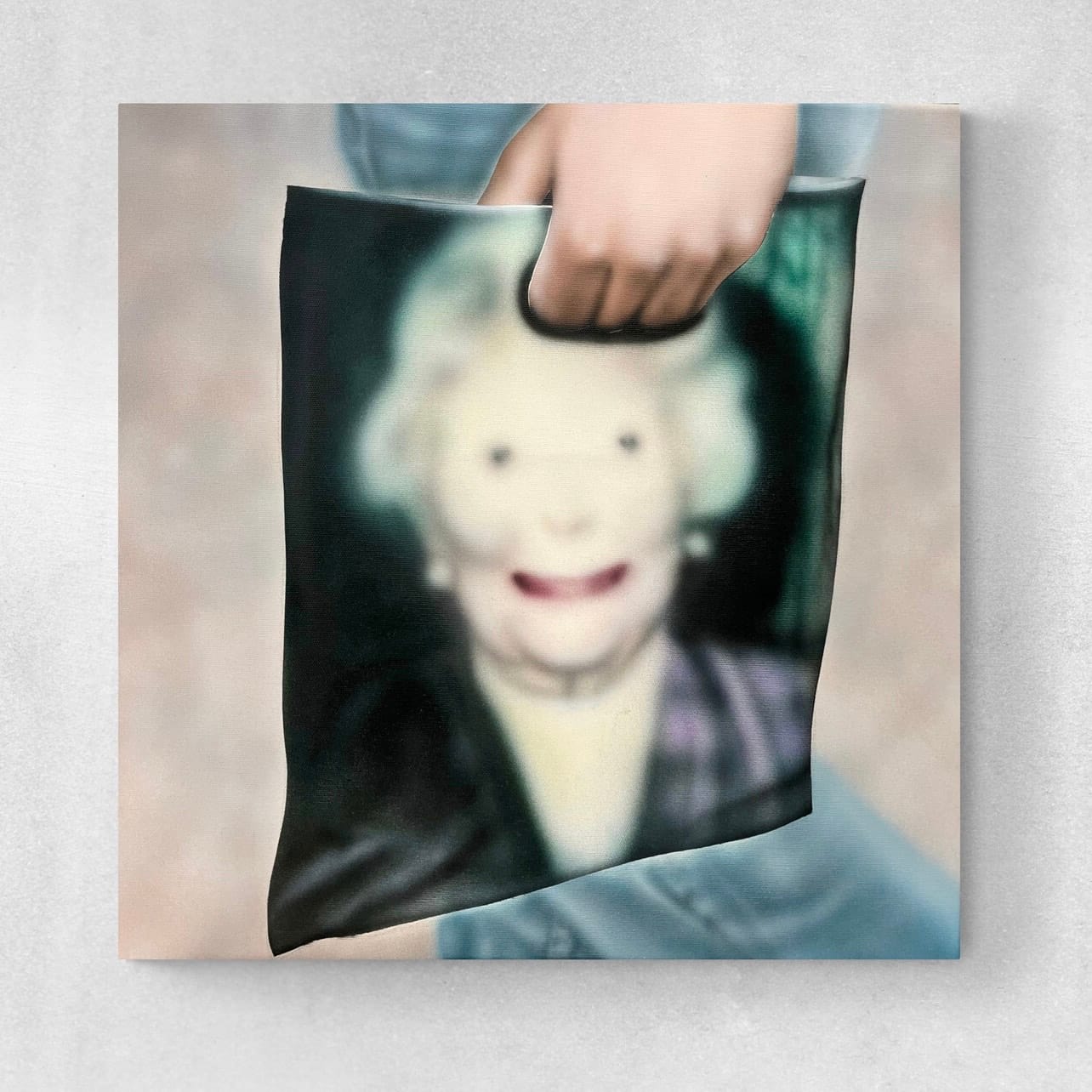
I’m sure living in Slovakia has influenced the way I see and create, but I don’t think I’ve deeply analyzed exactly how. It’s something that probably reveals itself in more subtle ways over time.
11. What do you hope your art communicates to others, and how do you want it to be perceived?
I want my art to be like a buffet — people can take what they need from it. I don’t want it to be too literal, even though sometimes it might be (I don’t always know myself).

I hope it opens up themes or feelings, that people feel seen or understood through it — or even just enjoy a moment of escape.
Thanks to DiFranco and Gabriela Genčúrová for the Interview
Follow Gabriela Genčúrová on Instagram to lose your grip on reality and love it.
See more surreal tenderness from a voice that speaks in symbols.
Related Reads:
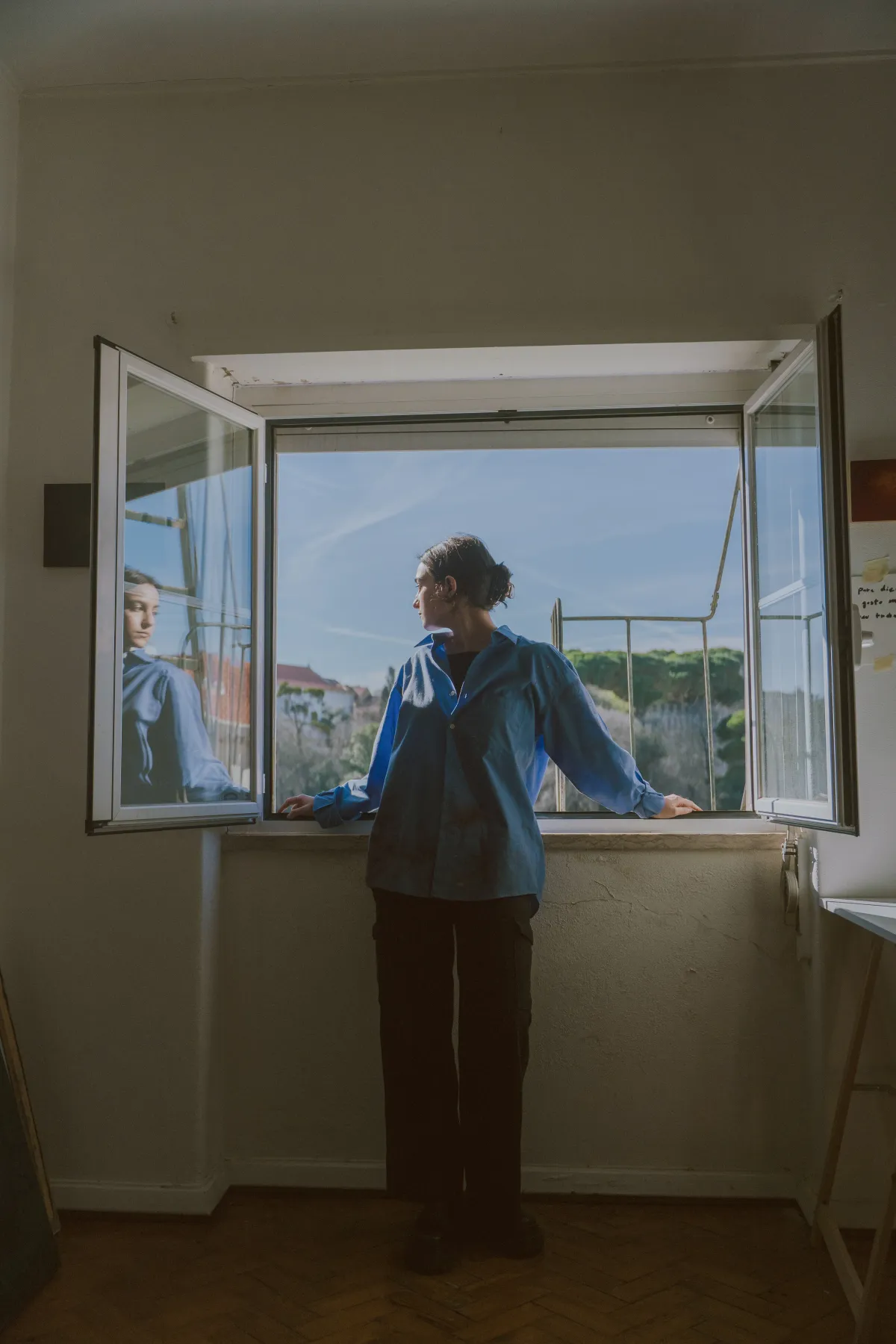
Maria Luz: Artist Spotlight
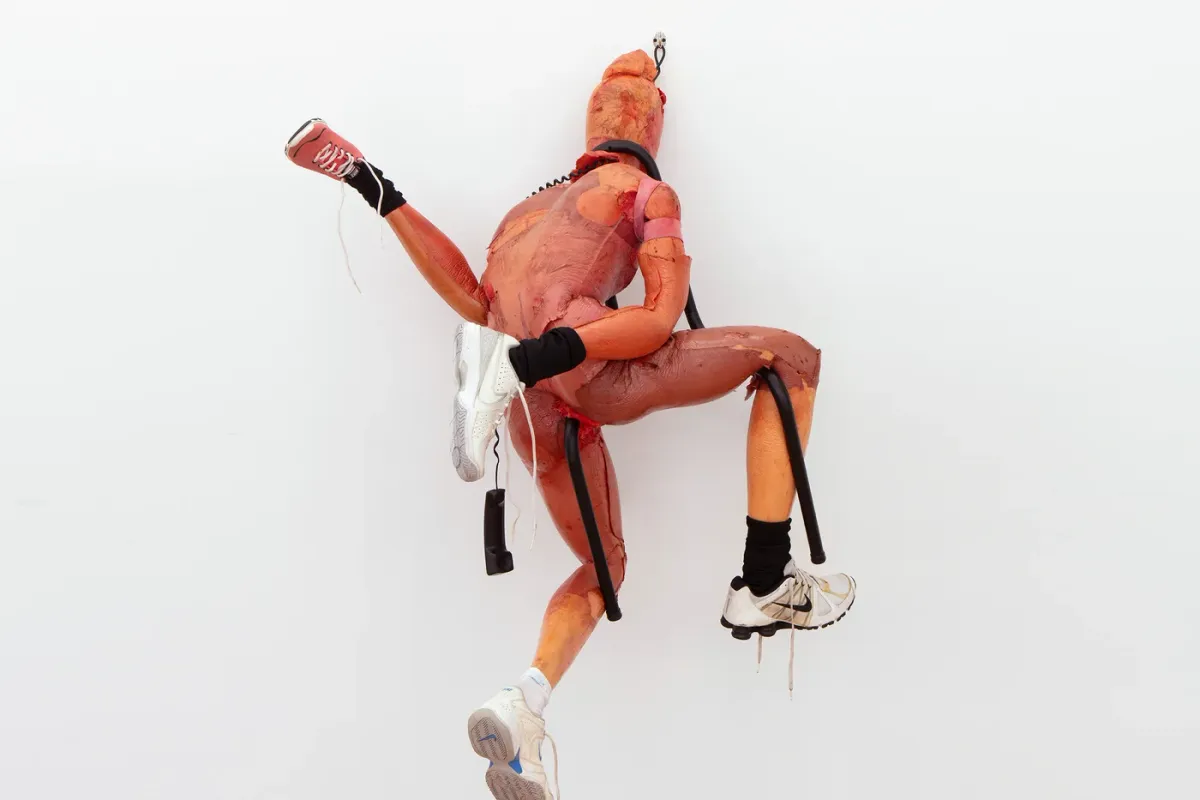
Friday Dispatch: Halle für Kunst Steiermark
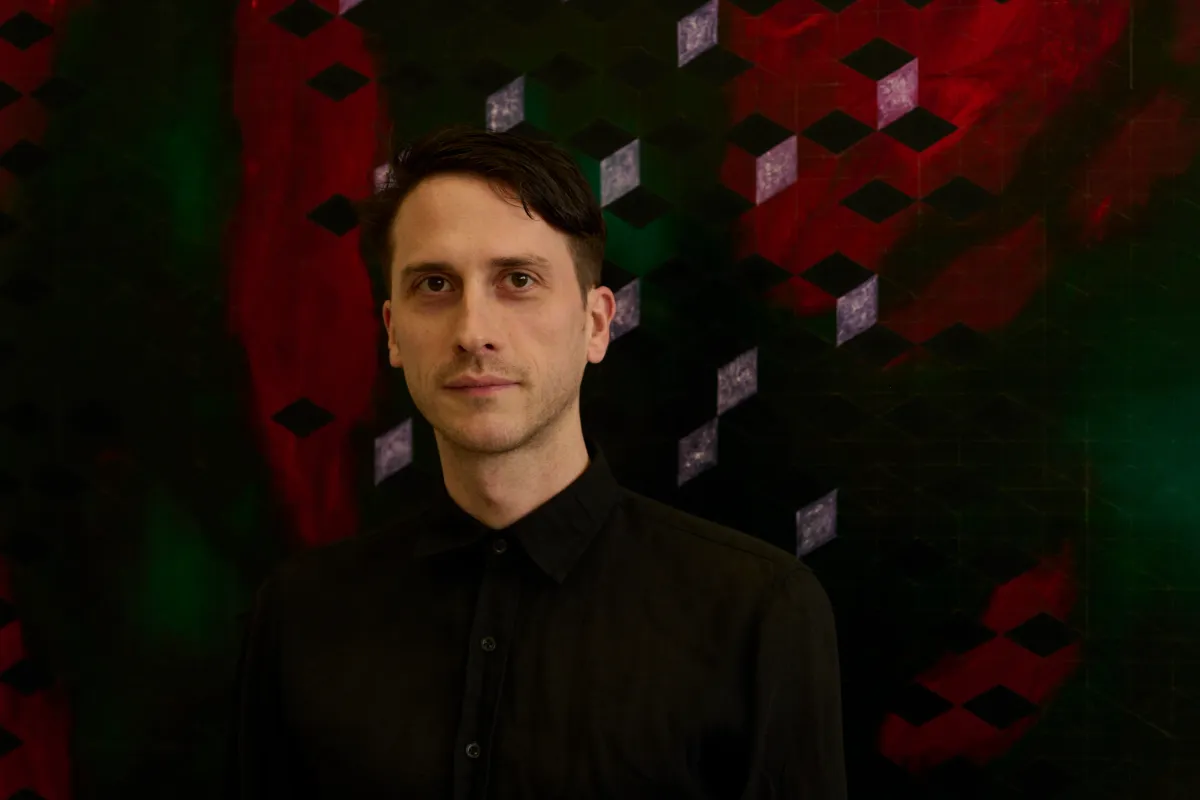
Artist Spotlight : Matthias Esch
No spam, no sharing to third party. Only you and me.
